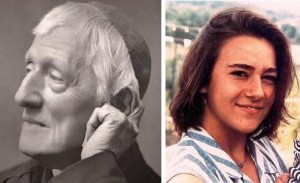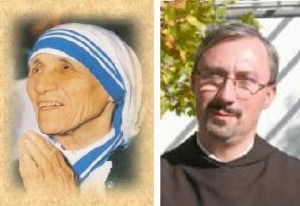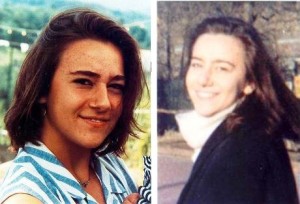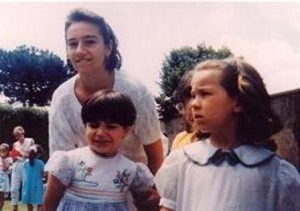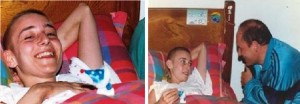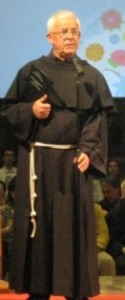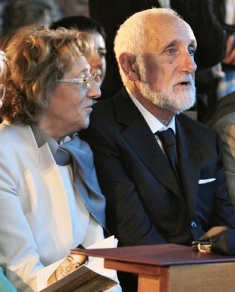An Image that Conjures up our Passing from this World to the Next.
 |
This week, we have had the funeral of Barbara Jakiemczuk, who was a very quiet and highly respected parishioner. It was not as if I had any long conversations with her, but she was always there with her husband, Ilian, in Church, on a Sunday at 9.30am, or Saturday at 6.00 pm. She may not have been noticed by many parishioners, but then again, she may, for it was not difficult to recognise her prayerfulness and ‘presence’ at Mass. After the funeral ceremony, in conversation with a parishioner friend, with whom she used to meet each week, I heard she was very good company and they both enjoyed a good laugh, together! Of course, it helps, enormously, to have displayed a photograph of the person who has died, as this aid to memory brings to the congregation the erstwhile ‘real’ presence of the deceased – even though there is a chance that this intensifies the great sadness felt at the so recent loss of someone we love. In this photo we see the demur and quiet, loyal and straightforward Barbara, enjoying a drink at some party, with family and friends.
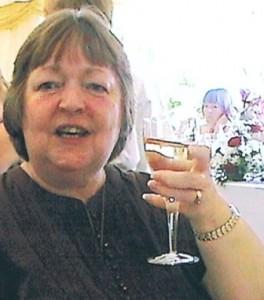 |
Barbara Jakiemczuk
The Mass, which she attended so regularly each Sunday, is a foretaste of the Heavenly Banquet. This puts me in mind of the ‘Kingdom of heaven’; this quite wonderful image may be compared to a king who gave a wedding banquet for his son. (Mt. 22: 2)
 |
Wedding Feast at Cana
Clearly, Barbara in the picture, is engaging in conversation with somebody, and once again I am reminded of the ‘Dynamism of Heaven’. We cannot pass round the white wine at Mass, nor break into engaging conversation with those present, and yet the spirit of what we are about is just as dynamic. Each other person, who belongs to the worshipping congregation, in particular, is important, and, as our Sign of Peace shows, that the ‘neighbour’ to whom we turn, at this special point in the Mass, is a friend already, or a friend to be made – or should be!
By contrast, there is a beautiful Eucharistic hymn entitled, “O bread of heaven”, and in its last verse it has these lines:
Beloved Lord in heaven above,
There, Jesus, thou awaitest me;
To gaze on thee with changeless love;
Yes, thus, I hope, thus shall it be:
Many years ago, the phrase ‘Changeless Love’, always, conjured up in my mind a certain ‘stillness’ before the Blessed Sacrament, and, without wishing to offend anyone, a rather boring existence! Over the years, I have come to realise that there is a real ‘dynamism’ in being still, quiet, and at peace, before the Blessed Sacrament – ‘drinking in’ the real presence of the person of Jesus, in his greatest attitude of love; for me, this realisation has had to be acquired, as the dynamic aspect of it was unappreciated as a younger monk. It may be that to some, even now, adoration before the Eucharist can appear to be lacking in dynamism.
It happened that Barbara’s funeral was on the 22nd February, the feast of the Chair of St. Peter. This means that, in truth, it is the feast of the whole Church – the Church consisting of the whole family of God’s baptised children, and, quite deliberately, the Church focuses attention on the Office of St. Peter and his successors as this is the mark of unity – of singularity – which binds this ‘Family of God’ in the ‘togetherness’ of the Church. This great feast celebrates this essential UNITY. But, I want to take this aspect of unity a little deeper, for I am sure that, when certain things occur in our lives, this not just by chance, or accident. St. Peter was involved closely in Barbara’s life, and death. Also, It is no accident that Peter is often shown with the Keys of the Kingdom of Heaven, for Peter stands with Jesus as they welcome God’s friends to their salvation.
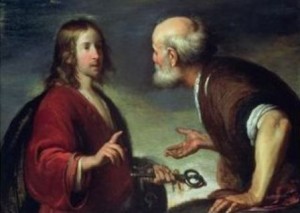 |
St. Peter Receives the Keys to the Kingdom of Heaven from Jesus
During the liturgy of the funeral, I had a glorious ‘vision’ of the faithful and loving Barbara at Heaven’s gate, and St. Peter was there to welcome her – just as ‘old friends’ are wont to welcome each other. Then graciously, and courteously, he leads Barbara to Barbara’s greatest friend – Jesus, the one who is the Gate of Heaven for us; Jesus said: “I am the gate. Whoever enters by me will be saved, and will come in and go out and find pasture.” (John 10; 9). The joy of meeting Jesus – the first person we will meet after death, (cf1 Thess 4; 17) was enormous, and she had tears of love and gratitude in her eyes, for the infinite, and undeserved, love she was receiving. My ‘vision’ went on to show me Barbara, who could not help but recite, in her heart, the ‘Magnificat’ of Our Lady – Mary the Mother of God: “My soul glorifies the Lord, my spirit rejoices in God my saviour, for he has looked on the lowliness of his handmaid and all generations from this day forward will call me blessed.” (Luke 1; 46-48). After meeting Jesus, and enjoying his lovingly warm company, Jesus himself takes her to meet, who else but his Mother. This meeting was supremely happy, with hugs and kisses, tears and laughter, all round. Barbara and Our Lady were kindred spirits, but then came the joy of meeting God the Father and God the Holy Spirit, with more of the same happiness and affection, and each moment driving home that greater understanding of the majesty of the Three Persons in the One God – unity and diversity known to us as a faint shadow of likeness, from our family experiences on earth. Soon, she was mingling with her other relatives and friends, and many new people, all ‘wrapped’ in the dynamic joy of God’s kingdom. How wonderful it was as conversation ‘bubbled over’ – all interspersed with beautiful silences of mutual love and understanding, never before experienced.
 |
Silences of Earthly Mutual Love and Service – a Pale Shadowy Reflection of the Joys of Heaven
Quite soon, she was to think of all those still left behind on this earth, struggling with so many, seemingly, insurmountable challenges; you see, Barbara then saw the world, and all who live there, as it really is – a shadow-land – where people are taken up by the unimportant things, rather than putting their concentrated efforts into the life-giving, essential things, that are all to do with God and his Kingdom. Shakespeare got close to it, putting these words onto Macbeth’s heart.
To-morrow, and to-morrow, and to-morrow,
Creeps in this petty pace from day to day,
To the last syllable of recorded time;
And all our yesterdays have lighted fools
The way to dusty death. Out, out, brief candle!
Life’s but a walking shadow, a poor player,
That struts and frets his hour upon the stage,
And then is heard no more. It is a tale
Told by an idiot, full of sound and fury,
Signifying nothing.
(Macbeth, Act 5, Scene 5, 19–28)
I come back ‘down to earth’ and would say that it is interesting to ‘replay’ the sorts of visions that may come to us, when engaged in the ordinary things of life! It is interesting to reflect, that Barbara Jakiemczuk, unknown to all ‘intents and purposes’ to me, and, possibly, to almost everyone in the Parish Community of Leyland, St. Mary’s, may well be one of the most important of Parishioners in the eyes of God!
May she, and all the faithful departed, rest in peace.
(Unfortunately, in sending out this blog by e-mail, ‘Word Press’ distorts the original
formatting of the document. Readers are, therefore, advised to visit the website
www.stmarysblog.co.uk should they wish to read it in its intended format).

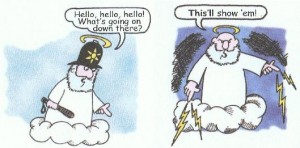
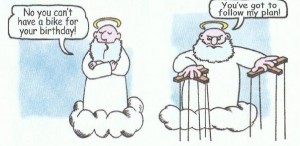
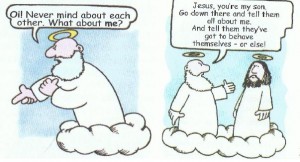
![g4[1]](http://176.32.230.2/stmarysblog.co.uk/wp-content/uploads/2011/02/g411-226x300.jpg)

